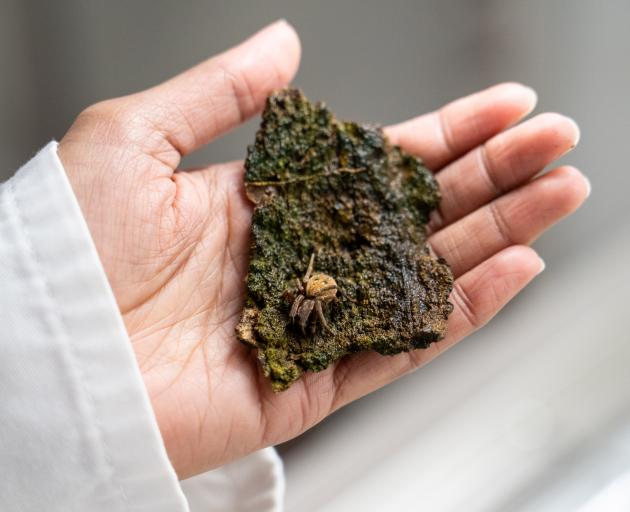Science
Parasitic Worms Transform Spiders into Zombie-Like Hosts

A fascinating yet alarming phenomenon is unfolding in New Zealand, where parasitic worms known as mermithids are transforming spiders into what can only be described as zombie-like hosts. Usha Mendis, a PhD student at Lincoln University, is leading research into these nematodes and their impact on local spider populations.
Mendis’s research reveals that these parasites target various invertebrates, including caddisflies, mayflies, and grasshoppers, in addition to large endemic spiders. The implications for the ecosystem are significant, as Mendis emphasizes the essential role spiders play in maintaining biodiversity. With over 90% of New Zealand’s spider species being endemic, any threat to these creatures could have dire consequences for local ecosystems.
Understanding the Zombie Transformation
The process by which mermithids infect spiders is complex and leads to a slow decline in the host’s health. Infected spiders exhibit various physical changes, such as growing larger limbs that become thicker and shorter, while their abdomens swell. “They look like zombies,” Mendis noted. Unfortunately, the only definitive way to identify an infected spider is to wait until it dies, at which point the nematode emerges to continue its life cycle.
While researchers have gained some insight into how these nematodes exit their hosts, much remains unknown about the initial infection process. Mendis is focused on uncovering how the nematodes infiltrate the spider population. The nematodes rely on the spiders as a host to obtain energy and nutrients, which are crucial for their development.
The Role of Moisture in the Life Cycle
Moisture plays a critical role in the nematodes’ life cycle. Mendis explains that the parasites drive spiders to seek out wet environments to facilitate their growth, mating, and eventual egg-laying. It is not uncommon for infected spiders to be found drowned, highlighting the detrimental effects of this parasitic relationship. Even if a spider survives the nematode’s emergence, it is unlikely to live much longer.
To better understand the mermithids and their relationship with spiders, Mendis is employing water traps to collect these parasitic worms. Since mermithids were first reported in New Zealand 35 years ago, ongoing research is essential to fully comprehend their dynamics with local spider populations.
As Mendis continues her work, she urges the public to reconsider their perceptions of spiders. Despite their often creepy appearance, she emphasizes that spiders are not the enemy; rather, they face their own challenges. “Spiders may look disruptive and creepy, but they’re not the enemy. They’ve got their own problems to deal with,” she stated, highlighting the importance of understanding the ecological roles these creatures play.
The intricate balance of New Zealand’s ecosystems is at stake as researchers like Mendis uncover the hidden complexities of parasitic relationships. The findings of her research could be pivotal in understanding and potentially mitigating the impacts of these nematodes on endemic spider species.
-

 World4 months ago
World4 months agoTest Your Knowledge: Take the Herald’s Afternoon Quiz Today
-

 Sports4 months ago
Sports4 months agoPM Faces Backlash from Fans During Netball Trophy Ceremony
-

 Lifestyle4 months ago
Lifestyle4 months agoDunedin Designers Win Top Award at Hokonui Fashion Event
-

 Entertainment4 months ago
Entertainment4 months agoExperience the Excitement of ‘Chief of War’ in Oʻahu
-

 Sports4 months ago
Sports4 months agoLiam Lawson Launches New Era for Racing Bulls with Strong Start
-

 World5 months ago
World5 months agoCoalition Forms to Preserve Māori Wards in Hawke’s Bay
-

 Health4 months ago
Health4 months agoWalking Faster Offers Major Health Benefits for Older Adults
-

 Lifestyle4 months ago
Lifestyle4 months agoDisney Fan Reveals Dress Code Tips for Park Visitors
-

 Politics4 months ago
Politics4 months agoScots Rally with Humor and Music to Protest Trump’s Visit
-

 Top Stories5 months ago
Top Stories5 months agoUK and India Finalize Trade Deal to Boost Economic Ties
-

 Health2 months ago
Health2 months agoRadio Host Jay-Jay Feeney’s Partner Secures Visa to Stay in NZ
-

 World5 months ago
World5 months agoHuntly Begins Water Pipe Flushing to Resolve Brown Water Issue









